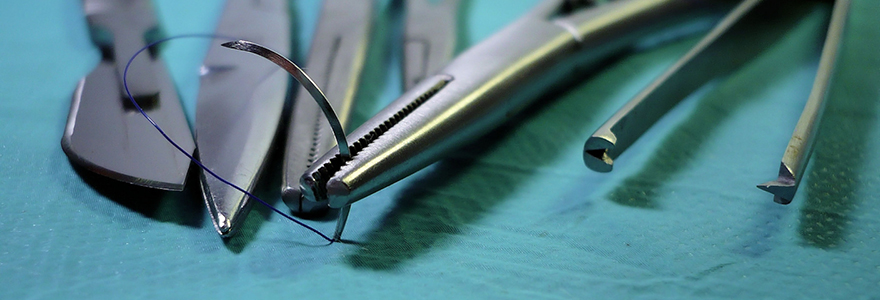Education
Contact Information

Teraysa Noyes
Neurosurgery Program Administrator
neurosurgerycns@lhsc.on.ca
Neurosurgery Residency
Overview
The Division of Neurosurgery at the Department of Clinical Neurological Sciences at the Schulich School of Medicine & Dentistry at Western University consists of twelve consultant neurosurgeons, with clinical and academic interests encompassing the full scope of neurosurgery.
A well-founded subspecialty organization within the Division has provided excellent training for the residents in all aspects of neurosurgery. Areas of particular interest include neurovascular and endovascular surgery, epilepsy and functional neurosurgery, neuro-oncology and complex spinal disorders.
Resident Spotlights
Dr. Faizal Haji was featured in a resident spotlight in his PGY6 in 2017. Read his experience here.
Dr. Abdul Naeem was featured in a resident spotlight in his PGY5 in 2018. Read his experience here.
General Organization
Neurosurgery is a six-year program starting at the PGY1 level. The PGY1 and PGY2 years are regarded as core surgical training years and include six months of neurosurgery, three months of paediatric neurosurgery, three months of internal medicine, two months of general surgery, two months of ICU, one month of emergency medicine, one month of anesthesia, one month of pediatric critical care and five months of other surgical rotations, which usually includes two months on the trauma service. Rotations in orthopedics (spine) and plastic surgery are encouraged during this period. The PGY4 year includes six months of neuropathology, three months of paediatric neurosurgery and three months of neurosurgery. The PGY5 year includes nine months of research and three months of neurosurgery. The PGY6 year includes nine months of neurosurgery and three months of neurology. There is a 12-month "senior" year beginning in the last quarter of the PGY5 year.
Residency Downloads
Application
Application Process
Currently, the neurosurgery program only accepts applicants through the Canadian Resident matching Service (CaRMS).
Selection Criteria
From the list of candidates, individuals are selected who have shown primary interest in neurosurgery as determined from their applications. Primary interest may be proven through: taking an elective rotation in neurosurgery; reference letters from neurosurgeons with whom the candidate has had elective experiences; personal attestation can be shown in the form of an essay, discussing the candidate's primary interest in neurosurgery (same as personal letter).
Programming
Seminars
Seminars in basic neuroscience occur on a bi-weekly basis, being provided for the residents within the Divisions of Neurology and Neurosurgery. Guest research and neuroscientific seminars are held throughout the year through the two programs "Perspectives in Neuroscience" and the "London Neurosciences Association". These latter seminars would amount to approximately 20 - 30 per year. Other seminars in basic and clinical neuroscience are provided on an ad hoc basis through the various rounds within the Department of Clinical Neurological Sciences, the Journal Club, and through resident requests.
Research
The residents are encouraged to undertake definite periods of research (in the PGY-3 to 6 years, amounting to a minimum of 6-12 months) which will provide them with, at a minimum, an introduction to the scientific discipline underlying research, but with the encouragement to go on to postgraduate degrees in neuroscience. The resident is encouraged to follow his or her own interest in this regard and hence, such training may be attained within the resources of the division (adult models of ischemia, various aspects of brain tumors, and epilepsy), within the university basic neuroscience departments, the Robarts' Research Institute or at another academic institution.
Facilities
- London Health Sciences Centre - Victoria Campus & University Campus
- Children's Hospital of Western Ontario
- Robarts Research Institute
The Neurosurgical training program takes place at the London Health Sciences Centre, consisting of two campuses. Adult neurosurgery occurs at University Hospital, which is attached to the Schulich School of Medicine & Dentistry, Western University, and the Robarts Research Institute. Pediatric neurosurgery takes place at the Children's Hospital of Western Ontario, Victoria Hospital. The regional trauma centre is also part of Victoria Hospital.
Why CNS?
- Large, broad clinical experience
- Flexibility to explore academic interests
- Close academic association with Neurology
- Caliber of teaching faculty
- Flexibility of rotation structure
- Support and flexibility for residents to pursue research in and outside of London
- Support for residents to attend courses and conferences
- Chance to train his some of the giants of neurosurgery history
Residency Life
Neurosurgery residents complete their residency training over the course of six years. During this time they have the opportunity to learn from leaders in neurosurgery research, education, and clinical care.
Residents complete rotations at all three of London’s hospitals (University Hospital, St. Joseph’s Health Care London, and Victoria Hospital). Rotation areas include:
- Consult medicine
- Clinical care medicine
- Otolaryntology
- Infectious diseases
- Neurology
- Neuropathology
- Neuroradiology
- Neuro-intensive care unit (NICU)
- Orthopedics
- Trauma
- Neurotrauma
- Paediatric neurosurgery
Contact
CNS Department Contact
Program Administrator, Neurosurgery
neurosurgerycns@lhsc.on.ca
Co-Program Directors, Division of Neurosurgery
Drs. Joseph Megyesi & Adrianna Ranger









